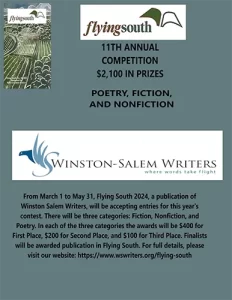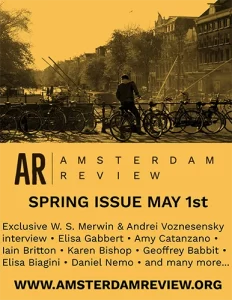The Antigonish Review – Spring 2012
Volume 43 Number 169
Spring 2012
Quarterly
Mary Florio
Although The Antigonish Review is partially supported by the Canada Council for the Arts and the Nova Scotia Department of Communities, Culture & Heritage, the publication does not overreach into a philosophical or political interpretation of the American experiment. Some might imagine that public funding could encourage specific response at the expense of story, but these stories, essays, and poems are not exclusively about Canada and Canadians. The issue is rich with diverse elements—such as references to Tunisia, teenage nihilism, mortuary science, and Egypt. The writing is disciplined, and because of this convention, I can carry the magazine everywhere; it is a talisman against lost time. And that’s the best symptom of clean prose—the ability it affords the reader to weave in and out of the narrative without feeling lost.
Although The Antigonish Review is partially supported by the Canada Council for the Arts and the Nova Scotia Department of Communities, Culture & Heritage, the publication does not overreach into a philosophical or political interpretation of the American experiment. Some might imagine that public funding could encourage specific response at the expense of story, but these stories, essays, and poems are not exclusively about Canada and Canadians. The issue is rich with diverse elements—such as references to Tunisia, teenage nihilism, mortuary science, and Egypt. The writing is disciplined, and because of this convention, I can carry the magazine everywhere; it is a talisman against lost time. And that’s the best symptom of clean prose—the ability it affords the reader to weave in and out of the narrative without feeling lost.
The closest I could get to an anthem is M.E. Csamer’s review of Pith & Wry: Canadian Poetry, an anthology edited by Susan McMaster (Scrivener Press, 2010). Csamer executes the review with a lyricism that speaks itself with poetic sensibility. She writes: “To be Canadian is to belong to an enormous place . . . we have the room to step back and take a second look at what seems different, threatening; to find the humanity in it, to voice that finding. But also to voice the land without us, its colossal indifference . . .”
In the center of the volume, Csamer articulates her philosophy of what Canada means to her as a writer: “Our land is vast, our stories, myriad. And breath is spare. When we call across such distances, we need always use our best words.”
Csamer’s claims are a convincing capstone for the journal. But using the “best words” doesn’t always mean the writers found a need to keep their gloves on to do so. Daniel Quinlan’s “Ann’s Father’s Approval,” evolves as a sudden, modern gothic. I deconstructed the story to see how far Quinlan departs from form, and I interpreted the departures from the form as essential—the specters are more horrific in their realism.
The journal is well-organized and cohesive in many ways; themes that recede and reemerge do so seamlessly. I took a close look at Stephanie McKenzie’s poem “For Sylvia Plath’s Ariel” against McKenzie’s third poem in the publication, “After the Methadone Project,” and then against Laura Durnell’s short story “Life Goes On Without Me.”
McKenzie begins “For Sylvia Plath’s Ariel” with a kind of refraction: “Yet women might follow you mad. Ariel gives name to / our sickness. Surpasses. . . .” Following through, there is something vaguely bibliographic about McKenzie’s conclusion: “In witness thereof we all affix seals: blood taken from book, / words high-strung winds. Love looked for in dust / never found.” And by “bibliographic,” I mean to source the present to the past through literature, a way to create a new perspective through thorough examination of what has come before.
I approach Durnell’s “Life Goes on Without Me,” with antiseptic hands—this story is a fascinating examination of a very old narrative. I might be referring to a new narrative of mental collapse, a narrative stripped of the mysteries of Plath and Ginsberg and Fitzgerald—perhaps, somehow, the upshot of “The Big Chill” or an unauthorized James Taylor retrospective. In other words, this is a story that concerns suicide, but not in the way you might expect. It may be that, in this generation with our ready tabulations of norepinephrine, we fail to romanticize mental illness, and Durnell, like so many of the authors in this collection, exercises considerable control.
The classic complications that arise from illness and death are very well-represented, but they are done so with a kind of reverent rebellion. David Zieroth’s “Grave Poem” sketches out in a classic form a visit to a grave that ends up searing the living—a meditation on life, death and the accident that joins them in stunning rhyme and meter.
Leslee Mann’s short story “Might Have Beens” begins with alphabetic electricity. “I’ll start with how he killed her,” she begins, explosively. This introduction becomes but a beam in a much larger plot architecture, even though it might serve as a cornerstone to her message. In terms of plot, her prose follows the multifarious responses to the tragedy of the attacks on the United States on 9/11, which is larger in scope and casualty than the death of an invisible person in an unnamed neighborhood. But her message could be centralized on the theme of individual loss in the context of greater loss: the idea that the loss of just one life can diminish all of us, everywhere, not just in New York or Belfast or Nova Scotia, but anywhere. Everywhere.
[www.antigonishreview.com]




